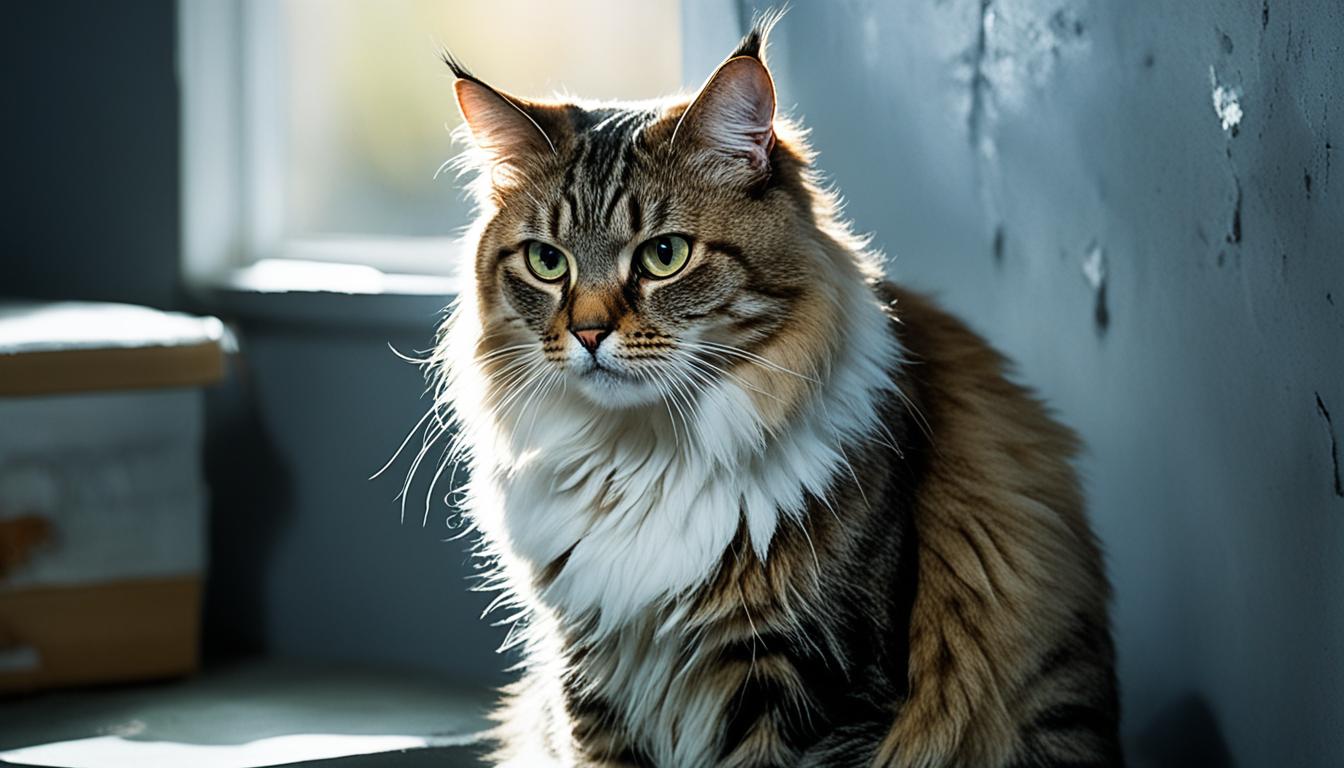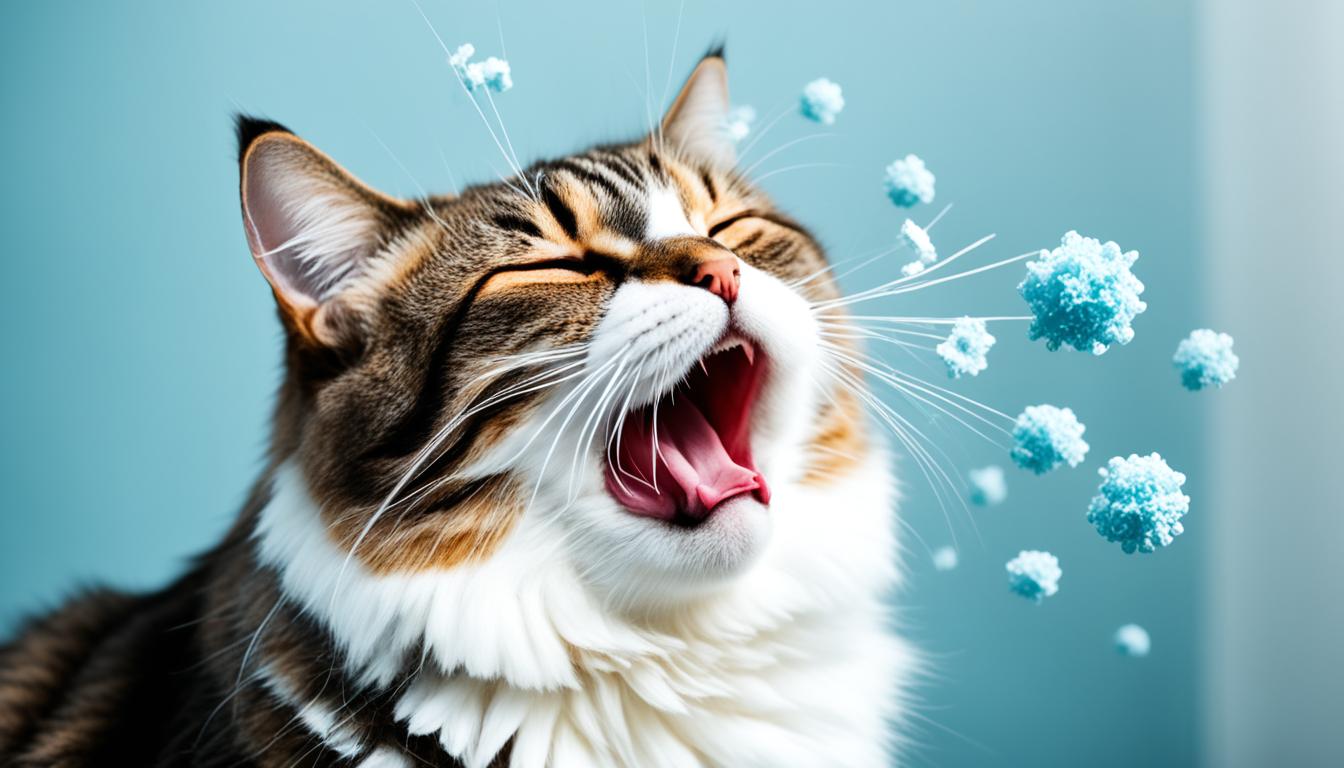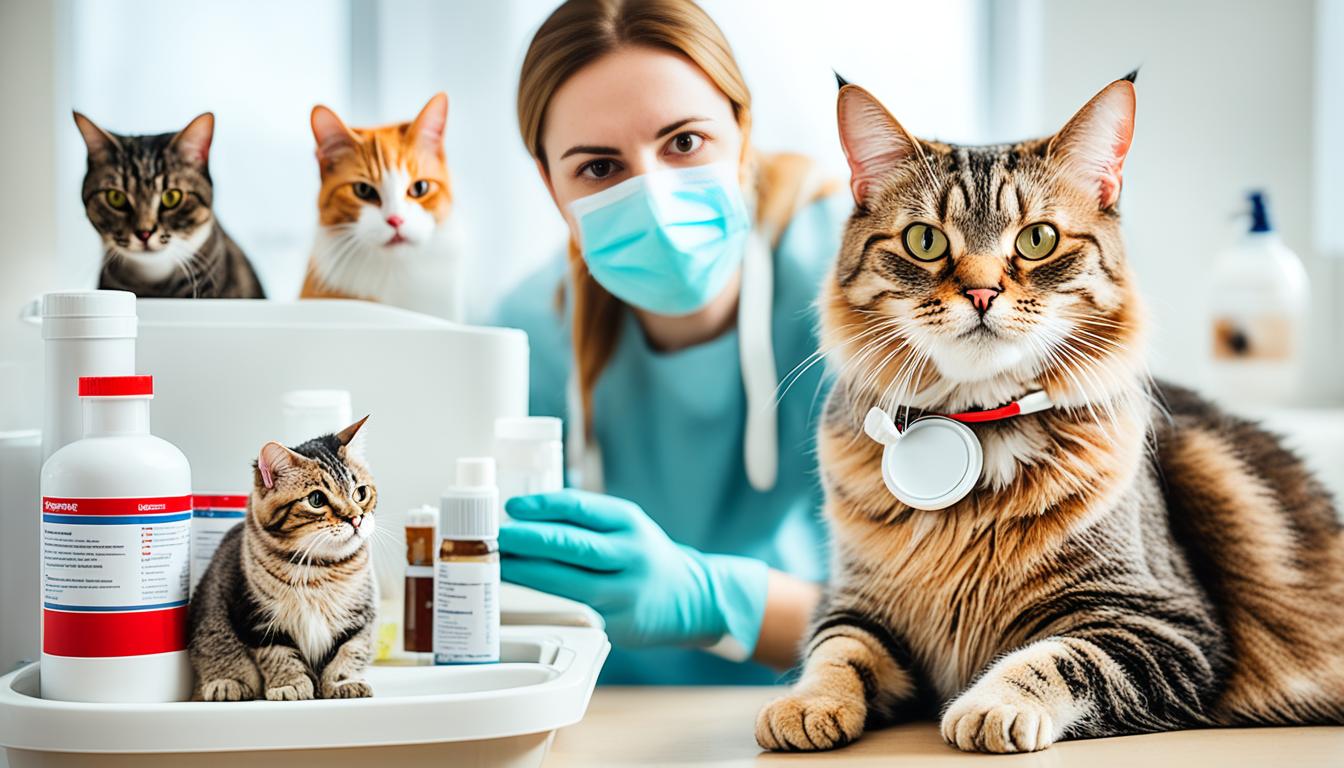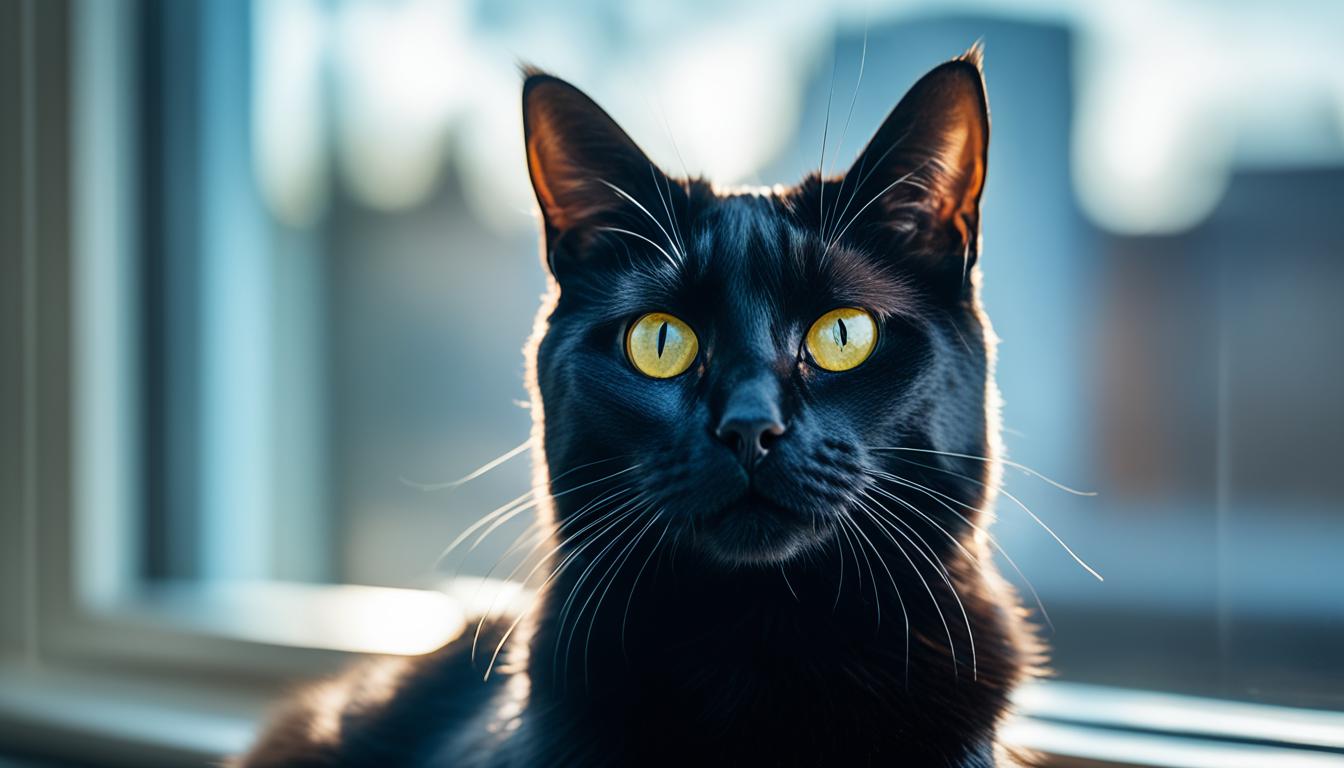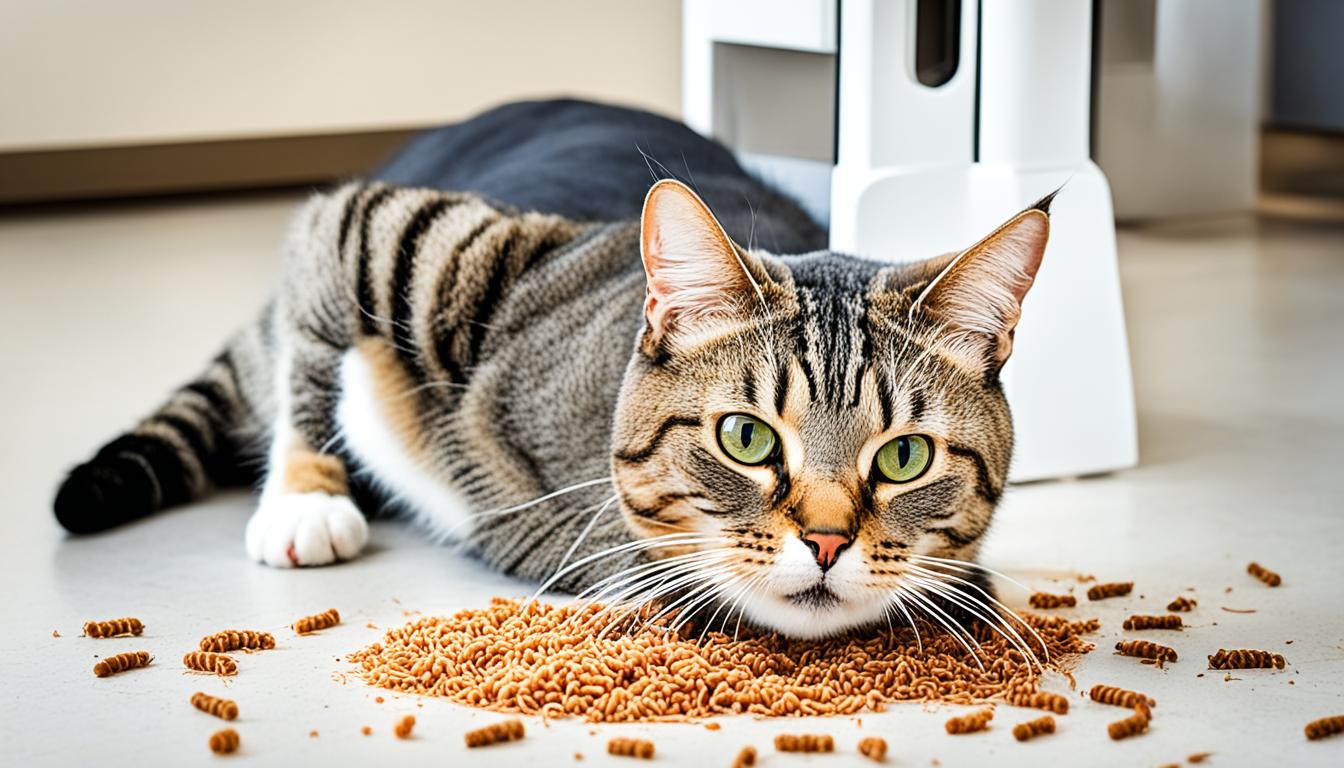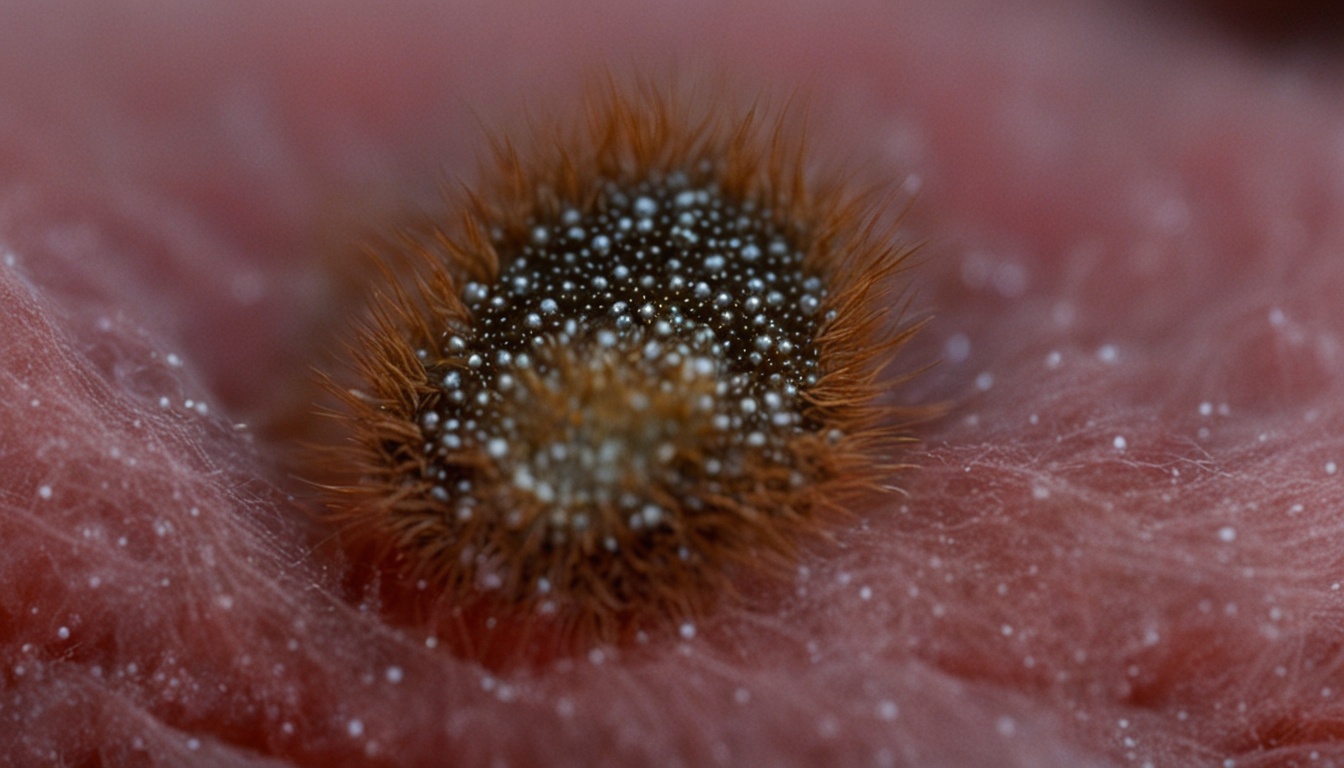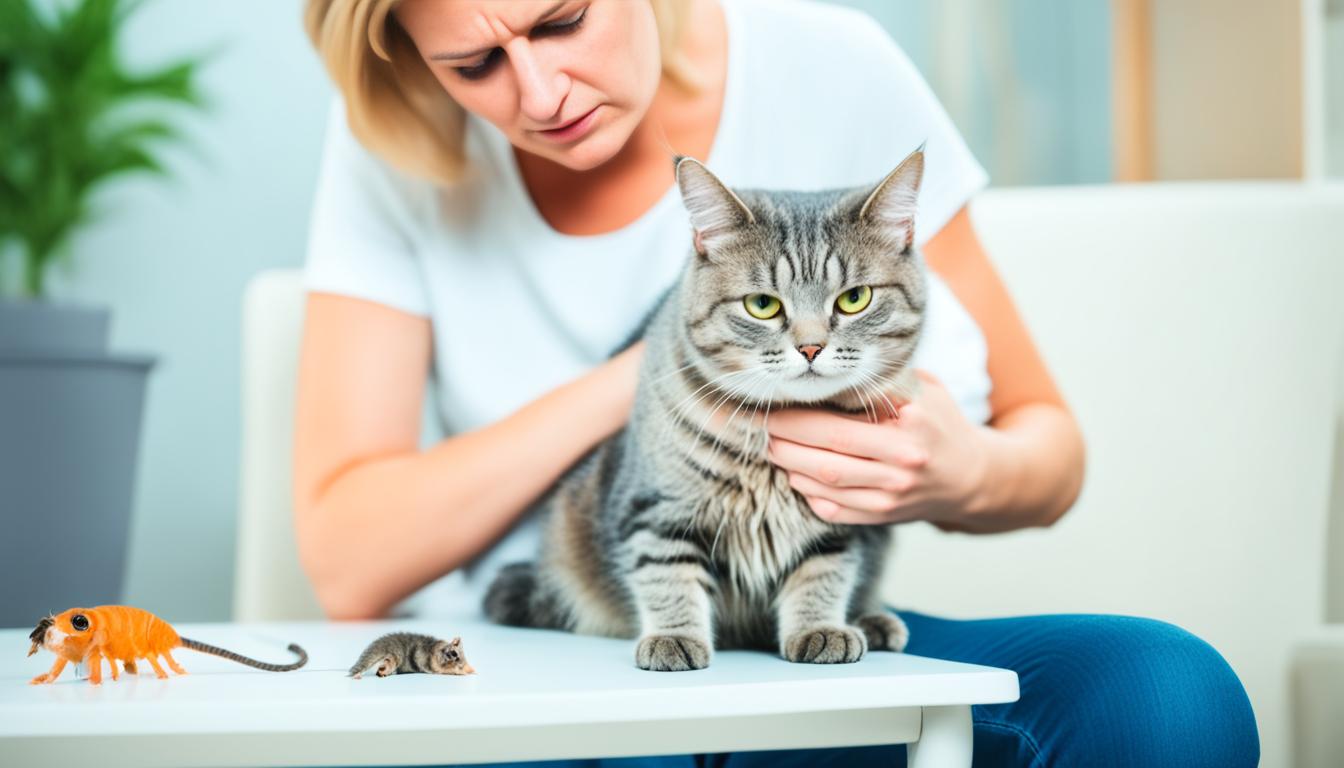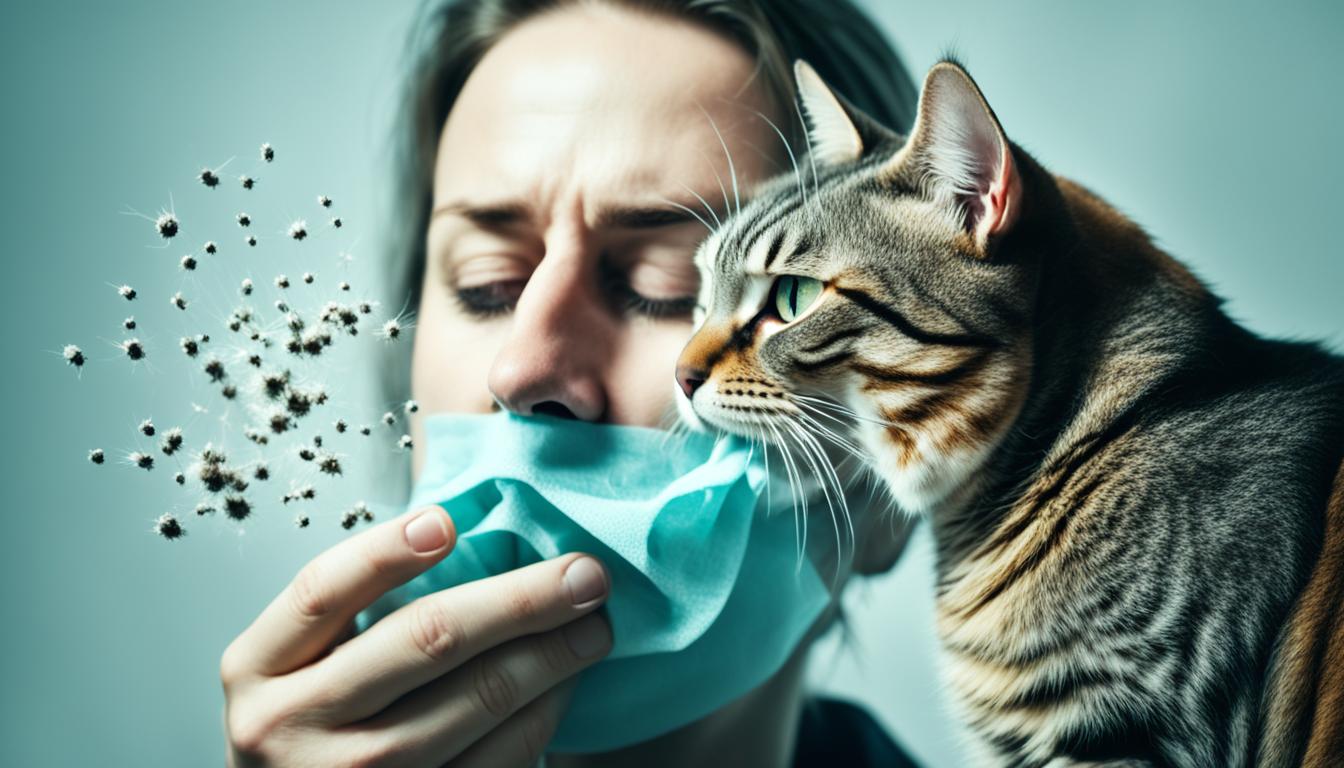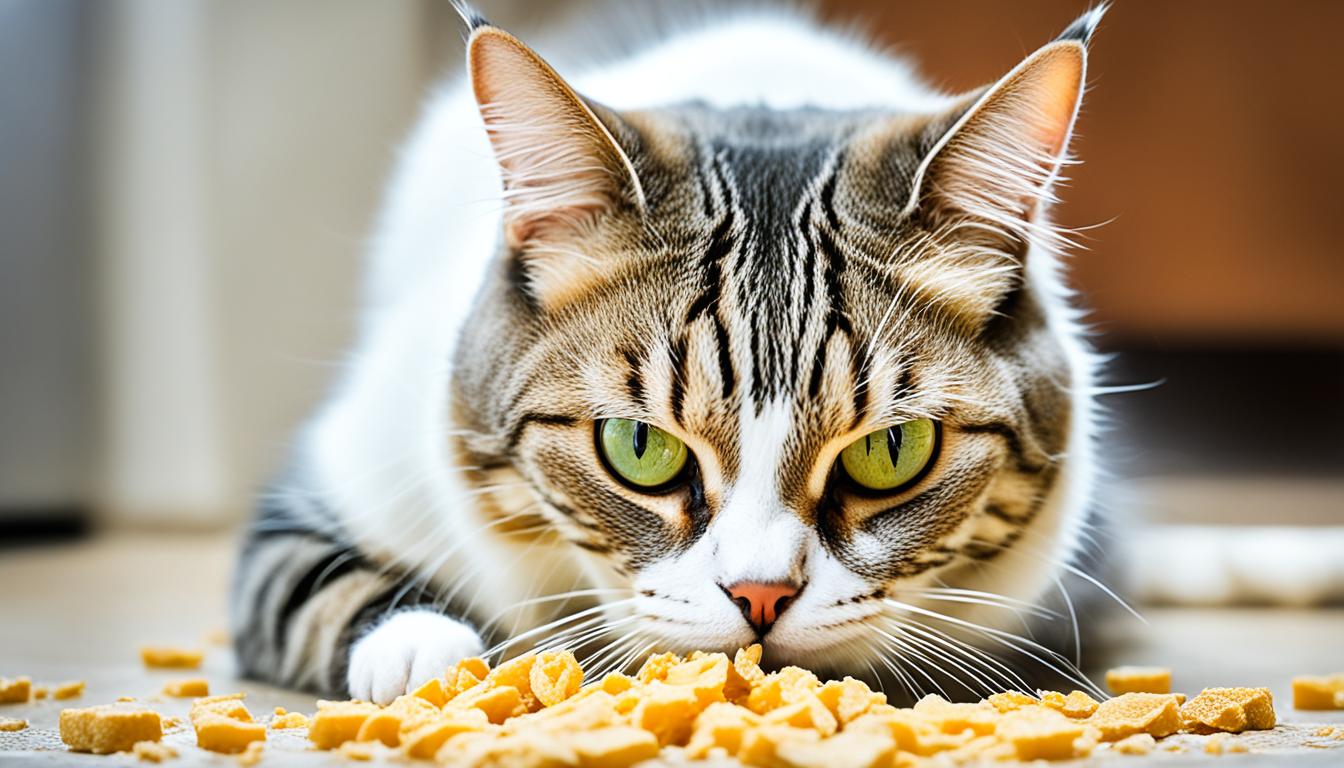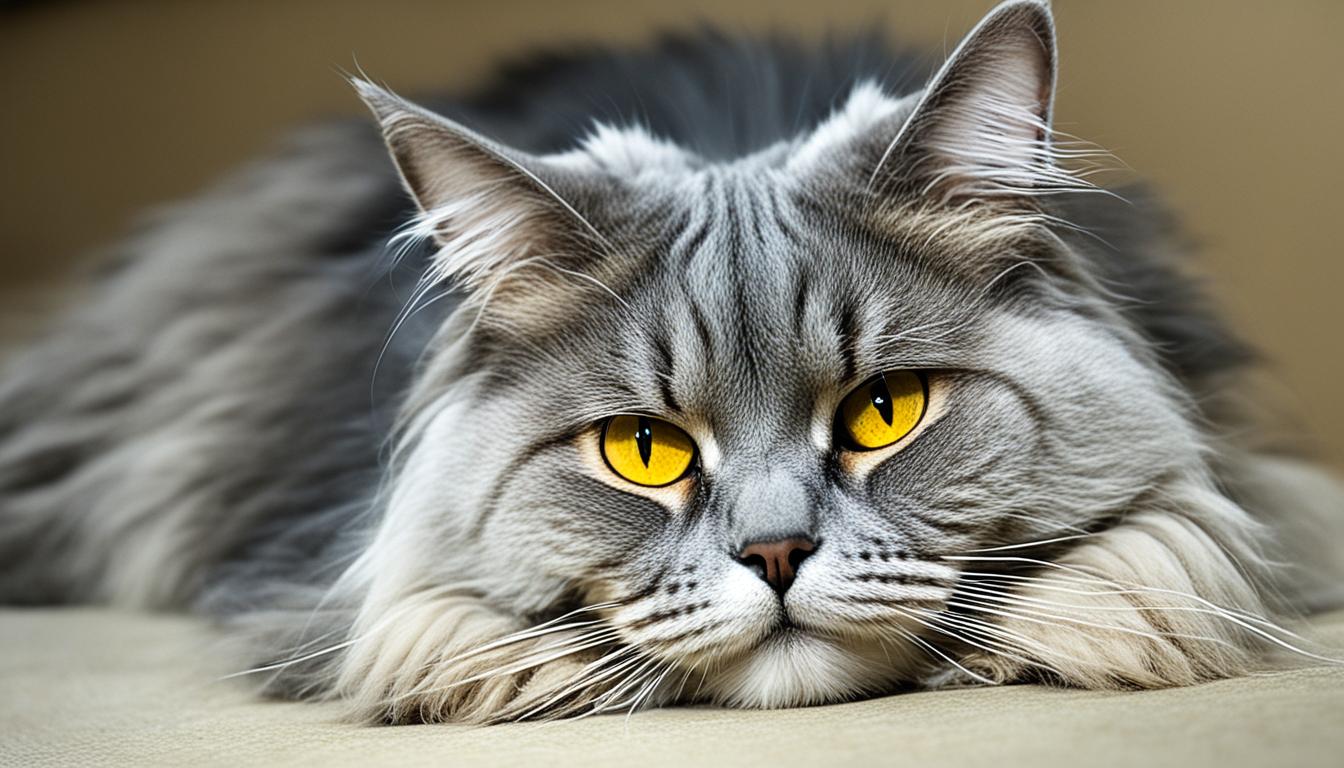If you own a cat, it’s important to know about coronavirus in cats. This virus can cause anything from mild stomach problems to a very serious disease called Feline Infectious Peritonitis (FIP). Even though COVID-19 usually spreads between people, it can sometimes affect pets too, including cats. The chances of people getting the virus from pets are very low. However, keeping clean and taking steps to avoid spreading germs can help stop the virus from moving between species. If your cat starts showing any symptoms, seeing a vet quickly can make a big difference.
Key Takeaways
- Feline coronaviruses can cause mild to severe diseases in cats.
- The risk of COVID-19 transmission from humans to pets exists but remains low.
- Proper hygiene is critical to prevent cross-species transmission.
- Early veterinary intervention can improve health outcomes in infected cats.
- Feline coronavirus can occasionally mutate into the highly fatal FIP.
Understanding Coronavirus in Cats
Feline coronavirus is common in cats and often causes mild or no symptoms. This virus can change into a severe form, leading to Feline Infectious Peritonitis (FIP), which is usually fatal. Knowing about this virus, how it spreads, and its risks is key to prevent it and ensure fast treatment.
Cats get this virus mainly from the poop of an infected cat. Keeping the environment clean is very important, especially where many cats live together. Places like shelters are at high risk for disease spread because of the many cats. Cleaning well and often helps stop the virus from spreading.
Seeing a vet regularly is very important to manage feline coronavirus. Check-ups can spot early signs and avoid serious problems. It’s vital to watch any sick cat closely for any health or behavior changes, showing the need for quick vet help.
The disease can change a lot from cat to cat. Many cats show no signs, but the virus can turn into FIP. Cat owners need to know and watch for early infection signs because early veterinary care can save lives.
Knowing the risks of feline coronavirus and how it can turn deadly shows why more research and learning are needed. Only with full knowledge and good care can we keep our cat friends healthy and safe.
Risks Associated with Coronavirus in Cats
The primary concern with coronavirus in cats is it might change into Feline Infectious Peritonitis Virus (FIPV). This change can cause a serious disease called Feline Infectious Peritonitis (FIP). It is often deadly. Younger cats, those living close together like in shelters, or cats with weak immune systems are at high risk.
It’s also important to think about how cats can catch coronavirus. Though rare, cats can catch it from their owners, especially if the owner has COVID-19. This poses extra risks for cats, making it key to take steps to keep them safe.
| Risk Factor | Impact on Cats |
|---|---|
| Age | Younger cats are more susceptible to FIP. |
| Living Conditions | Cats in high-density environments like shelters have a higher risk. |
| Immune System | Cats with weakened immune systems are particularly vulnerable. |
| COVID-19 Transmission | Close contact with infected owners can potentially spread the virus to cats. |
Cat owners must be aware of these risks and act to protect their pets. By keeping an eye on health risks and preventing the spread of coronavirus to cats, we can help keep them safe and healthy.
Common Symptoms in Cats Affected by Coronavirus
Cats with feline coronavirus show different signs. These depend on the virus type and the cat’s health. Spotting these signs early helps get timely vet care.
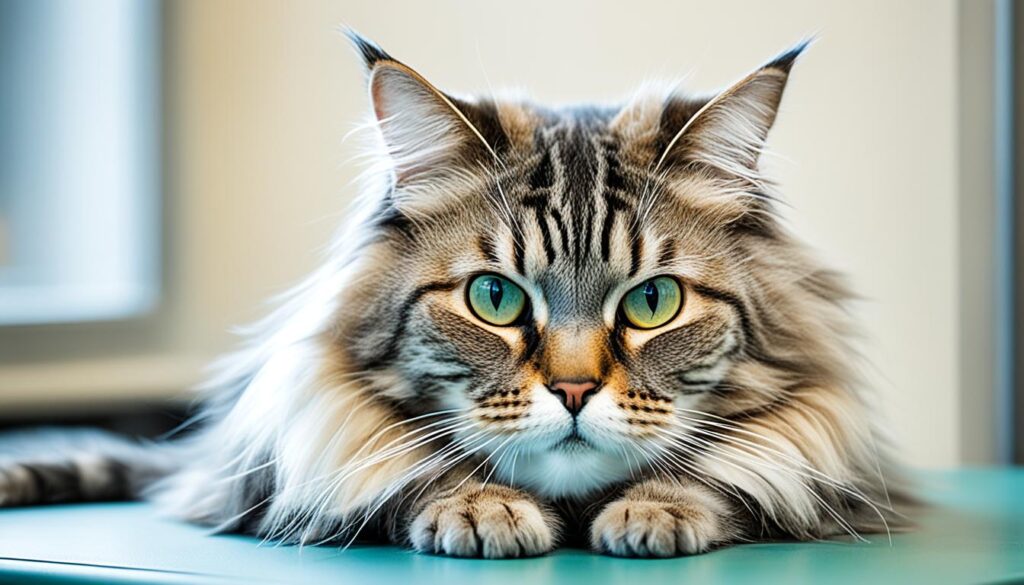
Respiratory Symptoms
Symptoms in cats with the virus affect their breathing. They may sneeze, have a runny nose, and cough. Without treatment, breathing problems can get worse.
Gastrointestinal Symptoms
The virus can also upset a cat’s stomach. Signs include diarrhea and vomiting. These can cause dehydration. Quick vet care is necessary to help and prevent worse issues.
Neurological Symptoms
In bad cases, especially with Feline Infectious Peritonitis (FIP), cats might have brain-related signs. This can mean seizures, clumsy movements, or acting differently. Such signs mean the disease is serious. Immediate professional help is needed.
Can Cats Get COVID-19?
Yes, cats can catch COVID-19, but it’s not common compared to humans. It’s vital to know how it spreads from people to cats. Also, spotting the signs in pets is key to keeping them safe.
Transmission from Humans to Cats
Cats can get the virus from close contact with humans. If a person with COVID-19 coughs or sneezes near a cat, they can pass it on. So, if you’re sick, stay away from your cat to stop the virus from spreading.
Symptoms in Cats with COVID-19
Cats with COVID-19 might cough, sneeze, have a runny nose, or trouble breathing. They might also have diarrhea or throw up. If you see these signs, get in touch with a vet.
Preventive Measures for Pets
To keep pets safe, stick to good hygiene and keep sick people away from animals. Here’s what you can do:
- Wash hands well before and after touching pets.
- Don’t get too close to pets if you’re infected.
- Make sure where you live is well-ventilated.
- Call your vet if you’re worried about your pet.
Feline Infectious Peritonitis (FIP) and Its Connection to Coronavirus
Feline Infectious Peritonitis (FIP) happens when a cat’s coronavirus mutates. This change causes a strong immune reaction, leading to severe inflammation. Signs of FIP in cats vary from feeling tired and eating less to more serious issues like fluid in the belly or chest.
Cats usually get mild symptoms from coronavirus. But, it can turn into FIP which is a big risk. Younger cats and those in busy places like shelters are more at risk. Spotting FIP early helps in managing and caring for cats.
| Factor | Feline Coronavirus | FIP |
|---|---|---|
| Pathology | Mild or asymptomatic | Severe inflammatory response |
| Affected Demographic | All cats | Younger cats, crowded conditions |
| Symptoms | Varying (often mild) | Progressive, severe |
| Prognosis | Generally good | Usually fatal |
It’s vital for cat owners and caregivers to understand FIP and coronavirus in cats. Sadly, clinical FIP often gets worse and is mainly deadly. But, knowing the early signs of FIP can help. This allows for timely care, even if it’s just to make the cat more comfortable.
Diagnosis and Testing for Coronavirus in Cats
Finding out if a cat has coronavirus involves different steps. Doctors look at several test results carefully. To get it right, they use a bunch of tools, each with its own pros and cons.

Types of Tests
Vets use a few tests to check cats for coronavirus. Here are the tests:
- Antibody Titers: This looks for virus-fighting stuff in the cat’s blood.
- Immunoperoxidase Test: It spots virus parts in body tissues, showing the cat is sick right now.
- Polymerase Chain Reaction (PCR): PCR finds the virus’s genes. It proves the virus is there.
These tests help vets figure out if a cat is sick with coronavirus.
Interpreting Test Results
Understanding cat coronavirus test results needs careful thought. Here’s why:
- Clinical Signs: Vets look for signs like ongoing diarrhea, losing weight, or belly swelling. These might mean FIP.
- Test Results: They compare different test results to be sure.
- Exposure History: They think about where the cat has been and its health history. This helps judge the risk.
No one test can say for sure a cat has FIP. Doctors use signs, test results, and the cat’s history together. This way, they get a clearer picture.
Treating Coronavirus in Cats
Treating coronavirus in cats needs different methods, based on the infection. There are main ways to treat it, like care and antiviral treatments. These fight the virus.
Supportive Care
Supportive care helps with symptoms and boosts the immune system. It includes giving fluids, food support, and medicine for pain and fever. A calm place is key for the cat’s recovery.
Antiviral Treatments
New antiviral treatments for cats look promising. One, GS-441524, could help with Feline Infectious Peritonitis (FIP). But we’re still learning about these drugs. Cat owners should talk to vets for the best treatment plans.
| Treatment Type | Description | Effectiveness |
|---|---|---|
| Supportive Care | Includes hydration, nutritional support, and symptom management. | Highly effective in mild to moderate cases. |
| Antiviral Treatments | Specifically targets the virus, GS-441524 being a notable example. | Promising, particularly for FIP, but under continued study. |
Early help is key for cats with coronavirus, leading to better results. Vets give targeted and effective care. This care meets the unique needs of each cat.
Preventing Coronavirus in Cats
Preventing coronavirus in cats focuses on good hygiene and vaccine options. Knowing the best ways to avoid the virus keeps cats healthy. These steps greatly lower their risk of getting sick.
Hygiene Practices
Good hygiene practices for feline health are key to stop the virus. Clean and disinfect areas where cats eat, sleep, and use the bathroom. Avoid places where many cats live close together. This lowers their chance of getting the virus.
Keep sick cats away from healthy ones. This stops the virus from spreading. It helps keep all cats safe.
Vaccination
Vaccines can help prevent coronavirus in cats. They make the cat’s immune system stronger against the virus. But, finding the right vaccine can be hard. Scientists and vets are still studying how well they work.
Talking to a vet will help pick the best vaccine. They understand what’s best for each cat.
Doing these things together – staying clean and choosing vaccines wisely – is best. This approach will keep cats safe from coronavirus. It ensures they live long, healthy lives.
Conclusion
For pet owners, understanding coronavirus in cats is key. This ensures their cats live healthy lives. Knowing the symptoms and how to prevent this virus is critical.
It’s essential to watch for signs of illness in your cats. These might include mild or severe symptoms. Seeing a vet quickly can help your cat get better faster.
To keep cats healthy, start with good care every day. This includes clean spaces and careful handling, especially in houses with many cats. Keeping up with new vet care methods is also important.
Cat owners should always seek a vet’s advice on coronavirus in cats. This means regular vet visits and staying current on vaccines. Professional advice is crucial for dealing with this virus.
The idea of coronavirus in pets might seem scary. But being ready and informed can help a lot. This way, cats can get the best care and stay safe.
FAQ
What is feline coronavirus?
It’s a virus found in cats. It can cause minor to severe diseases. These range from stomach issues to Feline Infectious Peritonitis (FIP), which can be deadly.
How is coronavirus transmitted in cats?
It spreads mainly through cat poop. High-density areas like shelters see more FIP cases. Cats can rarely catch COVID-19 from humans too.
What are the symptoms of feline coronavirus?
Symptoms vary with the virus strain and cat’s health. They might sneeze or have a runny nose. Stomach issues include diarrhea. FIP can cause seizures or strange movements.
Can cats get COVID-19 from humans?
Yes, but it’s rare. Cats can catch COVID-19 from people who are sick. This doesn’t happen often, though.
What should I do if my cat shows symptoms of illness?
If your cat seems sick, see a vet right away. Quick help is key, especially for serious diseases like FIP.
What are the risks associated with FIP in cats?
FIP is deadly and comes from a feline coronavirus mutation. It often hits young or sheltered cats, or those with weak immune systems.
How is feline coronavirus diagnosed?
Vets look at symptoms and do tests like antibody titers and PCR. These can help find the feline coronavirus.
What treatments are available for cats with coronavirus?
Treatment helps ease symptoms. The antiviral drug GS-441524 might treat FIP. Its full benefit is still under review.
How can I prevent my cat from contracting coronavirus?
Keep things clean and don’t crowd cats. Use clean litter boxes. Keep FeCV-infected cats away if possible. The effectiveness of FIP vaccines is not clear.
Source Links
- https://www.mayoclinic.org/diseases-conditions/coronavirus/expert-answers/can-pets-get-coronavirus/faq-20486391
- https://www.vet.cornell.edu/departments-centers-and-institutes/cornell-feline-health-center/health-information/feline-health-topics/feline-infectious-peritonitis
- https://www.webmd.com/pets/cats/cat-fip-feline-infectious-peritonitis






